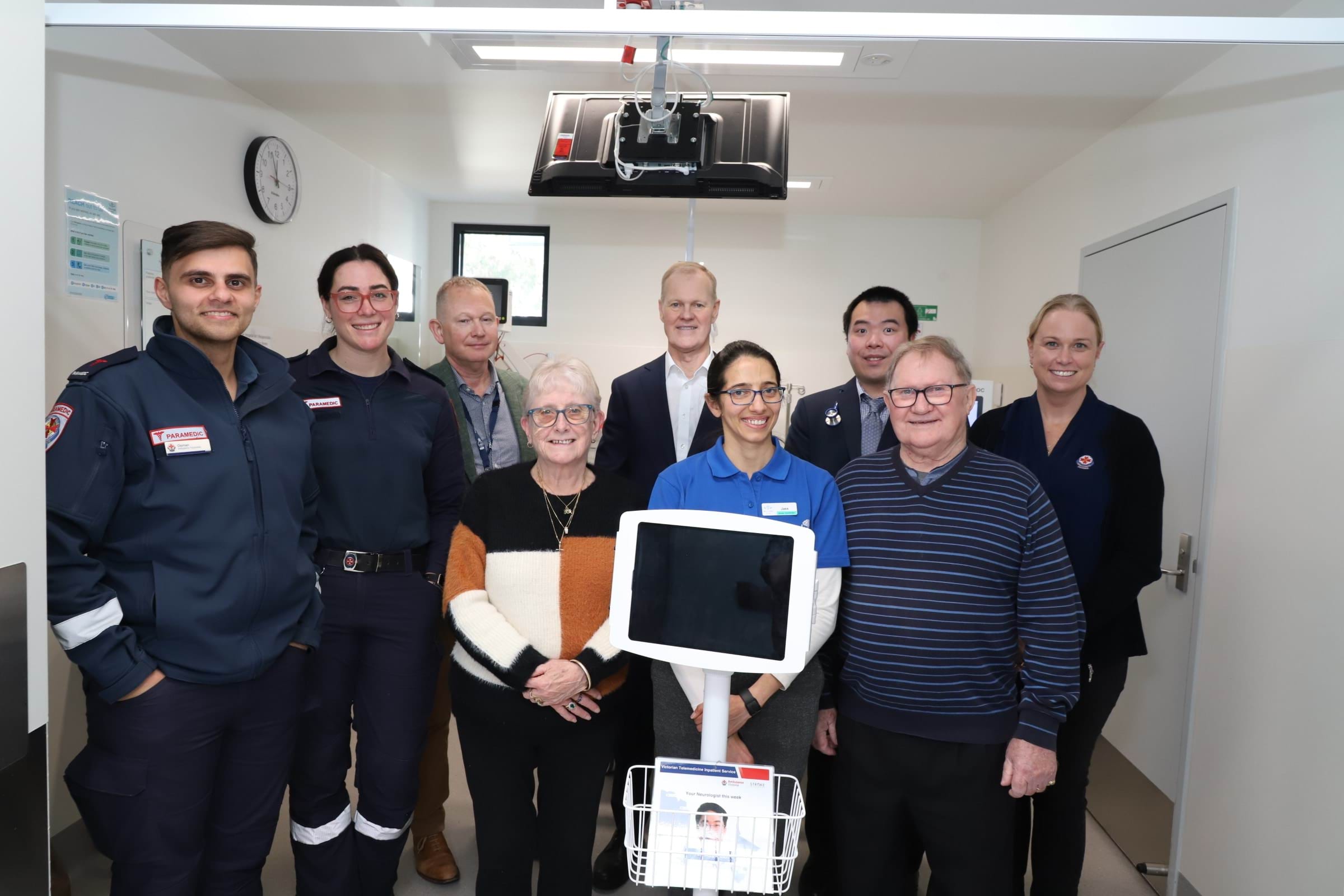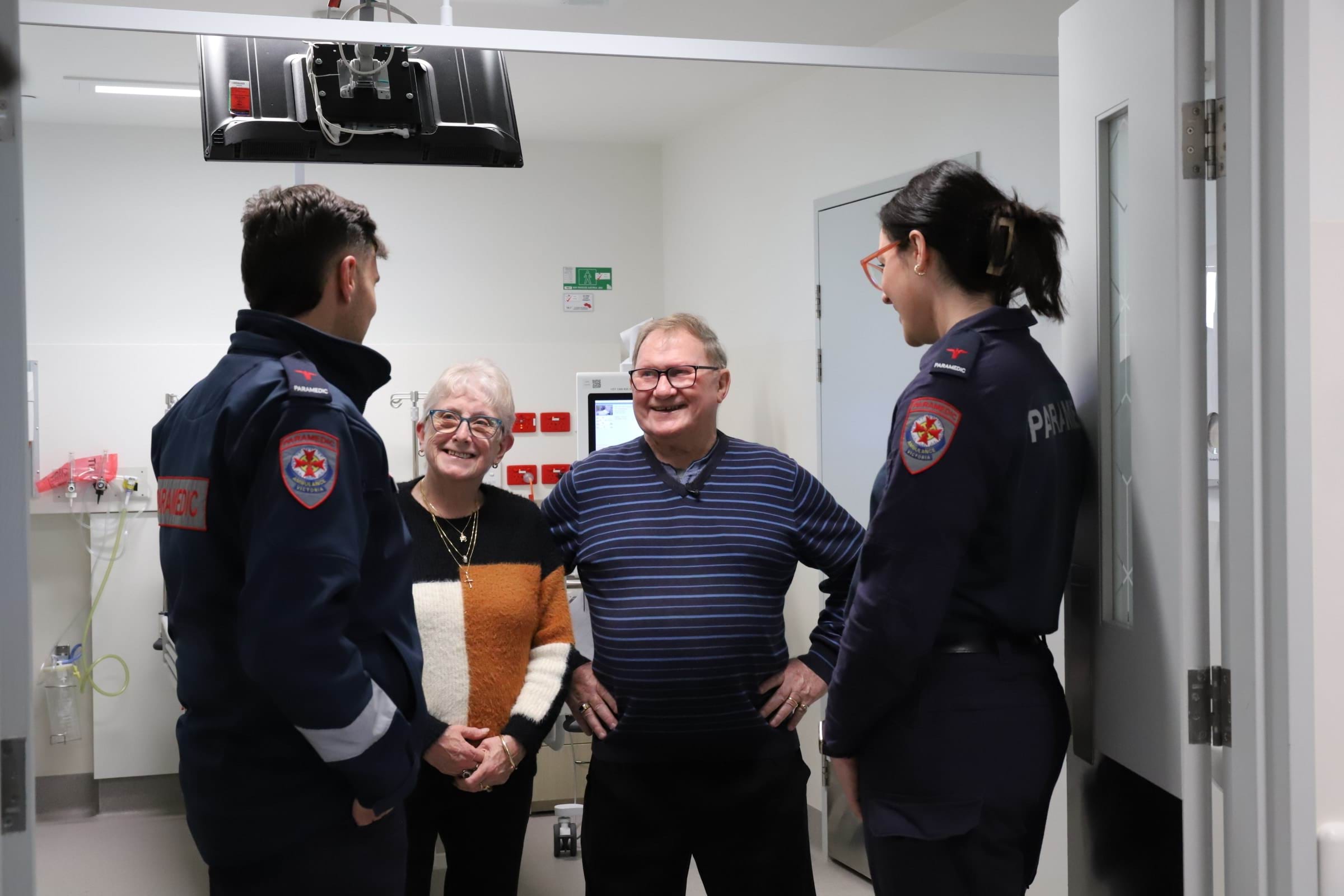In an Australian first, Ambulance Victoria is transforming stroke care by making it easier for patients to receive expert treatment without leaving their local hospital.
The Victorian Telestroke Inpatient Service (VTIS) ensures that stroke patients admitted to participating hospitals have direct access to Ambulance Victoria's team of stroke specialists and neurologists via telemedicine.
This innovative model delivers timely diagnosis, tailored management and coordinated discharge planning - all in one place.
The VTIS is part of Ambulance Victoria's broader Victorian Stroke Telemedicine (VST) service, helping doctors across the state work together to provide best-practice stroke care.
Director of Stroke Services at Ambulance Victoria Professor Chris Bladin said VTIS is a game-changer for hospital stroke care in regional areas.
"VTIS has allowed us to extend the expert stroke care we already deliver in the Emergency Department into hospital ward rounds, all undertaken by telemedicine," he said.

Since launching at Werribee Mercy Hospital in March 2025, 118 patients have benefited from VTIS. Many of these patients would previously have required ambulance transfer to a larger hospital for specialist care.
John Delaney, 74, was one of these patients. The great grandfather was enjoying a quiet evening at home in Werribee on 22 March when he suddenly became unwell.
His wife Margaret recognised the signs of stroke and immediately called Triple Zero (000).
Paramedics arrived quickly, identifying that John was experiencing a stroke, and transported him to Werribee Mercy Hospital, where he initially received a VST consultation in the Emergency Department and subsequently became the first patient to benefit from the VTIS service in the ward at Werribee Mercy Hospital.
"Receiving all my care in Werribee was brilliant. It's close to home and I was extremely happy with the service," John said. "Through this experience, I've learned that following F.A.S.T. can lead to full recovery. Everything worked in my favour."
Thanks to the combination of VTIS and the specialist team at Werribee Mercy Hospital, John received expert care from the moment paramedics arrived through to his hospital discharge.

"The VTIS partnership has been a fantastic addition to the services we can offer patients," Associate Professor Peter Lange, Clinical Service Director Medicine and Subacute Care at Werribee Mercy Hospital said. "It complements the expertise of our own on-site stroke physicians, ensuring patients receive the highest standard of care close to home."
Werribee Mercy Hospital Executive Director Brad Van Ooi highlighted that delivering a successful health service relies on continually evolving and strengthening partnerships.
"Our community is growing rapidly and so are the services we provide. Initiatives like VTIS reflect our commitment to providing exceptional care within our local area, where it matters most."
The VTIS improves diagnostic accuracy, reduces duplication of services and is cost effective for local health services. In 2023, just 35% of regional stroke survivors received formal stroke unit care.
Ambulance Victoria encourages Victorians to familiarise themselves with the F.A.S.T. stroke signs (Face, Arms, Speech, Time).
Translated resources are available from the Stroke Foundation to help communities across Victoria act quickly if stroke is suspected.






